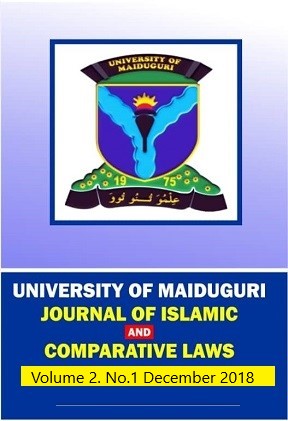Jurisdictional Challenges of the Shari‛Ah Courts: A Comparative Evaluation of the Experience in Nigeria And Zanzibar
The Shari‛ah embraces the Muslims total way of life. Muslims are required to judge their
affairs in accordance with Islamic law. Those who do not judge with what Allah (s.w.t.) Has
revealed are not seen as a true believer in the sight of Allah (s.w.t.). Thus, submitting affairs
to be judged in accordance with the Shari‛ah is fundamental to the Muslims’ right to really
practice their religion. To achieve this, sound institutions like the Shari‛ah Courts with
adequate powers and jurisdictions need to be put in place to ensure that Muslims properly
judge their affairs in accordance with the Shari‛ah. Despite this, Shari‛ah Courts in Nigeria
and Zanzibar are faced with a number of challenges which prevent them from properly hearing
and determining the Shari‛ah matters placed before them. This is notwithstanding the teaming
Muslim populations in these countries. One of such challenges is that the Court is not
empowered to decide all Shari‛ah matters. Rather, their jurisdictions have been limited to
Islamic personal law. This is in addition to the appellate challenges being faced in the two
jurisdictions. The paper discusses these jurisdictional challenges in a comparative nature
owing to the similar problems in the two jurisdictions. In doing this, constitutional and
statutory provisions are analysed and interviews conducted with some stakeholders are used
There are no reviews for this Journal.
About the Journal
About
Editorial Team
Curent issues
Archive
DOWNLOADABLES
Guide for contributors
Authors Response Form
Manuscript review Form
Make a Submission

